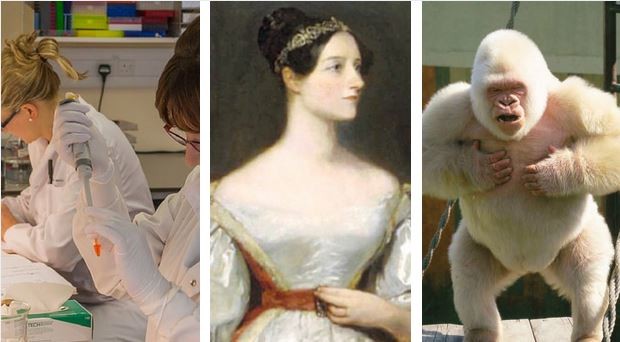
Why be a scientist?
Although being a scientist can sometimes be frustrating, it’s also incredibly rewarding. One thing early career researcher and guest blogger Bryony Graham pointed out in the most recent of her series of blogs is that it’s very easy to forget this. So why not ditch the complaining and read this blog to remind yourself why working in science is so great.
BMC Series celebrates its 15th birthday
July 19 marked the 15th birthday of the BMC Series, and to celebrate, we highlighted some of the most fascinating images that have been published through the years, as well as the most highly accessed articles. Senior Managing Editor, Diana Marshall, also discussed the journey of the journals so far, and what the future holds for the BMC Series.
The importance of reproducibility
How easily can published results be reproduced or replicated? This is becoming a question asked regularly in the science community. In an effort to address this BioMed Central launched the pilot of a new Minimum Standards of Reporting Checklist.
Kam Arkinstall discussed why this is so important, and Assistant Editor, Graham Bell, described how different methods can create different results. You can also read what the BMC Biology Editors thought of the new checklist.
Gender equality in science and technology
Are women in science in a better position than women in technology? Recent reports have shown that more and more women are entering science-based roles, yet the challenge starts when they attempt to move up the career ladder. In technology, however, there are fewer females entering the field in the first place, so how can this be improved?
As a woman working in both science and technology, Laura Wheeler from Digital Science gave her perspective on the challenges women face in these fields, including why role models like Ada Lovelace provide inspiration.
From monitoring the footsteps of mice to compassion in healthcare
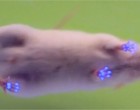 The MouseWalker: monitoring movement behaviors and disorders: Tracking the locomotor activity of rodents is important for the investigation of neurodegenerative or aging conditions that affect the locomotor system. Here, creators of the MouseWalker explained more about this new technology.
The MouseWalker: monitoring movement behaviors and disorders: Tracking the locomotor activity of rodents is important for the investigation of neurodegenerative or aging conditions that affect the locomotor system. Here, creators of the MouseWalker explained more about this new technology.
 A beginner’s guide to peer review: Part Three: Scientists don’t usually get any formal training on how to peer review. They have to rely on what they’ve read, observed, and their own experiences of peer reviewers’ comments on their work. So how do you write a good peer review report? Jigisha Patel discussed this in the last of a series of step-by-step guides for the novice peer reviewer.
A beginner’s guide to peer review: Part Three: Scientists don’t usually get any formal training on how to peer review. They have to rely on what they’ve read, observed, and their own experiences of peer reviewers’ comments on their work. So how do you write a good peer review report? Jigisha Patel discussed this in the last of a series of step-by-step guides for the novice peer reviewer.
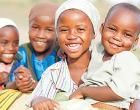 Quiz: Life on a crowded planet – what science reveals about the way we live: To celebrate World Population Day we created a challenging quiz to raise awareness of the diversity of health and life conditions around the world. Take these ten thought-provoking questions and see how much you know – it might make you see the world in a different light.
Quiz: Life on a crowded planet – what science reveals about the way we live: To celebrate World Population Day we created a challenging quiz to raise awareness of the diversity of health and life conditions around the world. Take these ten thought-provoking questions and see how much you know – it might make you see the world in a different light.
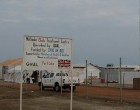 Home Leone: Experiences from a diagnostic laboratory in an Ebola Treatment Centre: Allie Robinson, a PhD student at the London School of Hygiene and Tropical Medicine recently returned from a five-week deployment to Sierra Leone working as a diagnostic laboratory staff member. In a guest post, she spoke about her experiences, including her best, and most challenging, moments.
Home Leone: Experiences from a diagnostic laboratory in an Ebola Treatment Centre: Allie Robinson, a PhD student at the London School of Hygiene and Tropical Medicine recently returned from a five-week deployment to Sierra Leone working as a diagnostic laboratory staff member. In a guest post, she spoke about her experiences, including her best, and most challenging, moments.
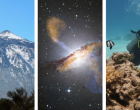 Extreme glitter: engaging children in science at ICEE 2015: Arriving to see delegates covered in glitter is not what you would expect at a conference. However, with the aim of engaging children in science at the 16th International Conference on Environmental Ergonomics, this is exactly what happened. In a Q+A with the organisers, Fiona Pring uncovered more about this initiative.
Extreme glitter: engaging children in science at ICEE 2015: Arriving to see delegates covered in glitter is not what you would expect at a conference. However, with the aim of engaging children in science at the 16th International Conference on Environmental Ergonomics, this is exactly what happened. In a Q+A with the organisers, Fiona Pring uncovered more about this initiative.
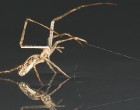 Seafaring spiders set sail for distant shores: Research published in BMC Evolutionary Biology discovered that spiders can glide across water like ships, using their legs as sails and their silk as an anchor. This discovery helps explain how spiders are able to disperse to new habitats, and also explains why they are often the first animals to colonize new lands. Christopher Foote explained more about the research in this blog.
Seafaring spiders set sail for distant shores: Research published in BMC Evolutionary Biology discovered that spiders can glide across water like ships, using their legs as sails and their silk as an anchor. This discovery helps explain how spiders are able to disperse to new habitats, and also explains why they are often the first animals to colonize new lands. Christopher Foote explained more about the research in this blog.
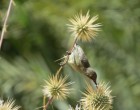 Beautiful science: winners of the BMC Ecology image competition 2015: The winners of this year’s BMC Ecology image competition wereannounced at the end of the month. Editor, Catherine Potenski, outlined each of the category winners so don’t miss out on some stunning photographs, displaying the amazing combination of artistry and science.
Beautiful science: winners of the BMC Ecology image competition 2015: The winners of this year’s BMC Ecology image competition wereannounced at the end of the month. Editor, Catherine Potenski, outlined each of the category winners so don’t miss out on some stunning photographs, displaying the amazing combination of artistry and science.
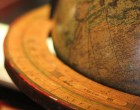 From India to the US, and maybe back again: the journey of a physician-scientist: “Currently, India does not have dual MD-PhD programs. I envision a joint program, that bridges the bedside and bench.” In this guest blog, Karishma Kaushik told us about her career journey, from studying medicine in India, to completing a PhD in the US, and becoming a mother along the way.
From India to the US, and maybe back again: the journey of a physician-scientist: “Currently, India does not have dual MD-PhD programs. I envision a joint program, that bridges the bedside and bench.” In this guest blog, Karishma Kaushik told us about her career journey, from studying medicine in India, to completing a PhD in the US, and becoming a mother along the way.
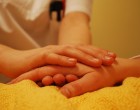 Is compassion an optional extra? There is international concern about the perceived lack of compassion in healthcare, but can we expect compassion to form a crucial part of healthcare today? The answer is surely yes – it can and it should, but Editor Sue Shea explained why this is not as straightforward as it seems.
Is compassion an optional extra? There is international concern about the perceived lack of compassion in healthcare, but can we expect compassion to form a crucial part of healthcare today? The answer is surely yes – it can and it should, but Editor Sue Shea explained why this is not as straightforward as it seems.
Comments